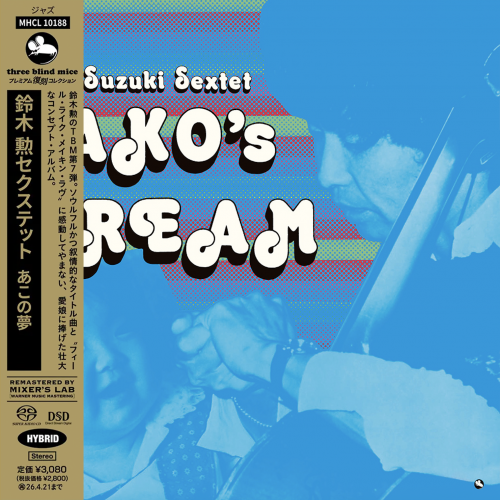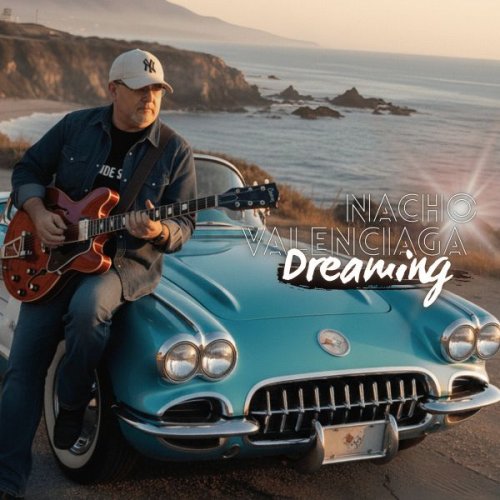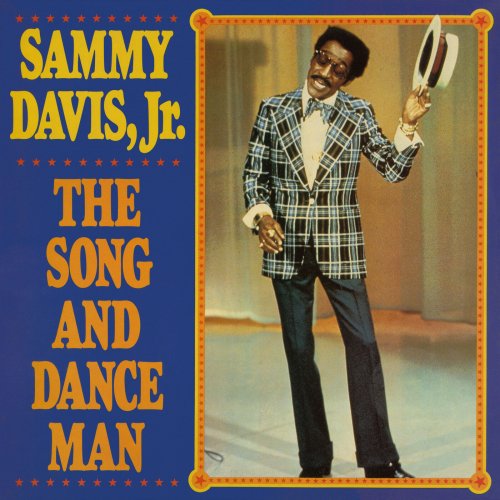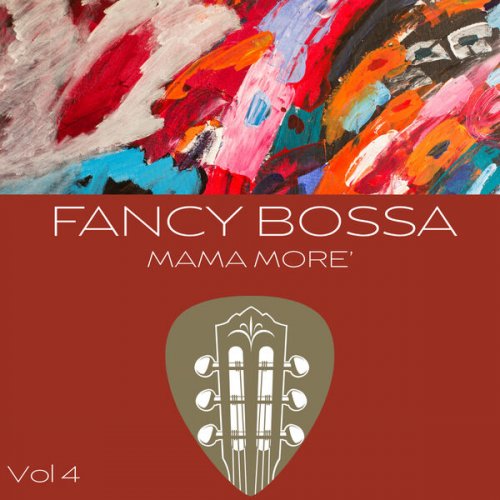The Manfreds - Sold Out: Live At The Fisher Theatre (2008)
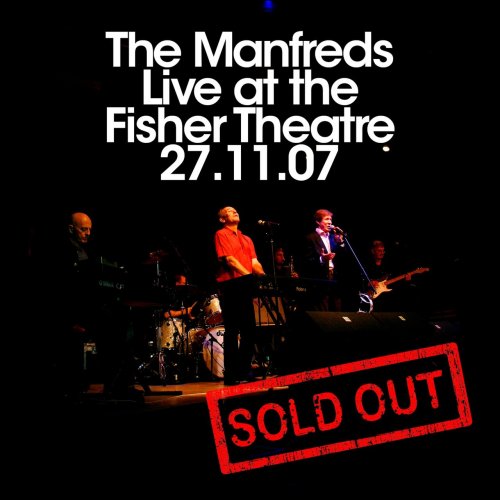
Artist: The Manfreds
Title: Sold Out: Live At The Fisher Theatre
Year Of Release: 2008
Label: Umbrella Music
Genre: Pop, Rock
Quality: Flac (tracks)/320 Kbps
Total Time: 1:38:11
Total Size: 635/226 MB
WebSite: Album Preview
Tracklist:Title: Sold Out: Live At The Fisher Theatre
Year Of Release: 2008
Label: Umbrella Music
Genre: Pop, Rock
Quality: Flac (tracks)/320 Kbps
Total Time: 1:38:11
Total Size: 635/226 MB
WebSite: Album Preview
1. The One In The Middle (3:32)
2. Ha! Ha! Said The Clown (2:47)
3. Sha La La (3:43)
4. Just Like A Woman (3:13)
5. Water Melon Man (8:30)
6. Malt And Barley Blues (3:37)
7. Fox On The Run (5:13)
8. Oh No Not My Bab (4:10)
9. Semii Detached Suburban Mr. James (2:34)
10. Pretty Flamingo (3:34)
11. I'm Your Kingpin (4:21)
1. Ragamuffin Man (3:36)
2. 5-4-3-2-1 (2:44)
3. Handbags And Gladrags (4:09)
4. Senor Blues (4:41)
5. My Name Is Jack (3:28)
6. One Off (2:45)
7. Come Tomorrow (4:42)
8. Build Me Up Buttercup (3:37)
9. When I'm Dead And Gone (3:39)
10. Mighty Quinn (3:53)
11. Do Wah Diddy Diddy (5:57)
12. If You Gotta Go Now - Whatever Happened To You (9:01)
Still touring in 2016 original Manfred Mann members Paul Jones, Mike D'abo, Mike Hugg and Tom McGuinness, are joined by Rob Townsend, Marcus Cliffe and Simon Currie as the exciting new line-up of The Manfreds.
Between 1964 and 1979 Manfred Mann scored three British Number One hits – plus two more Number One hits in America plus another seven that went Top 5 and six more that made the Top 10.
Over this period Manfred Mann’s bands featured some of the finest singers on the British pop and rock scene: Paul Jones, Mike d’Abo, Mick Rogers and Chris Thompson, all of whom have gone on to enjoy successful and varied solo careers. Their distinctive voices have all added to the rich variety of Manfred Mann’s classic hits.
South African-born Manfred Lubowitz arrived in Britain in 1961. He was already an accomplished jazz pianist and quickly established himself on the London club circuit with drummer Mike Hug with whom he formed the Mann Hug Blues Brothers. In 1963 the band was re-christened Manfred Mann and with a line-up featuring Paul Jones on vocals and harmonica, Mike Vickers on guitar, flute and saxophone, Tom McGuinness on bass and Hug they set their sights on the British pop scene which was about to explode.
They may have been a musically well-educated band but there was nothing sophisticated about Manfred Mann’s first hit the rowdy, frenetic 5-4-3-2-1 that they wrote for the theme song of the groundbreaking TV pop show Ready Steady Go! Boosted by its weekly exposure on the programme the single reached Number 5 early in 1964.
Manfred Mann had their first Number One in the summer of that year with Do Wah Diddy Diddy Diddy, written by the famous New York Brill Building song writing duo of Ellie Greenwich and Jeff Barry. They also found themselves in the vanguard of the British pop invasion of America alongside the Beatles and the Animals (and ahead of the Rolling Stones) as the song shot to the top of the US charts.
The band then proceeded to apply their sharp musical talents to other suitable pop songs such as Sha La La (an American hit for the Shirelles), the poignant Come Tomorrow and Oh No Not My Baby (written by another famous Brill Building duo, Carole King and Gerry Goffin) before turning their attention to Bob Dylan’s If You Gotta Go, Go Now that was a Number 2 hit in the UK and earned the approval of Dylan himself.
In April 1966 Manfred Mann notched up their second British Number One with the gorgeous, melodic Pretty Flamingo. Surprisingly it only scraped into the American Top 30 but it left a lasting impression on a teenage Bruce Springsteen who regularly played it live during the early part of his career.
Pretty Flamingo was the crowning glory for the first incarnation of Manfred Mann, not least for the personality-driven voice of Paul Jones who decided to bow out on a high note. He launched a solo career and starred in the movie Privilege – playing a rock star – before becoming one of Britain’s leading experts and commentators on the blues and R&B.
His departure put the group’s future in jeopardy but his replacement, the unknown public schoolboy Mike D’Abo immediately stamped his own character on the band and the hits flowed seamlessly on – Dylan’s Just Like A Woman, the quirky Semi-Detached Suburban Mr James and Ha! Ha! Said The Clown – before racking up their third UK Number One early in 1968 with Dylan’s Mighty Quinn, an anthemic masterpiece that astonishingly Dylan never released himself.
As the Sixties drew to a close Manfred and Mike Hug decided to explore new musical directions and after more Top Ten hits with My Name Is Jack, Fox On The Run and Ragamuffin Man, they disbanded Manfred Mann. The other members soon found new careers in other bands (Tom McGuiness formed McGuinness Flint) or in production. Mike D’Abo was already an accomplished songwriter.
Manfred and Mike Hug meanwhile embarked on a brief “anti-pop” career with the self-explanatory Chapter Three, a jazz-rock ensemble complete with a five-piece brass section. that was wilfully uncommercial but musically rewarding. After two albums Mike Hug decided to pursue a career composing soundtracks which notably included Up The Junction.
Meanwhile key members of the 60s Manfred Mann line-ups – Paul Jones, Mike D’Abo, Mike Hugg and Tom McGuinness – have banded together and perform as The Manfreds. Such is the enduring legacy of Manfred Mann over the past 40 years.
In 2007, Mike d’Abo became the proud father of twins, Ellie and Louis, and, for this year, he will be taking some time out to spend with his family. The Manfreds ‘Let Em Roll’ tour takes to the road with a new album release….aptly titled ‘Let Em Roll’….and Mike will join the band for a few festival dates throughout the year before re-joining for their highly acclaimed ‘Maximum Rhythm ‘n’ Blues’ UK tour in 2010
Between 1964 and 1979 Manfred Mann scored three British Number One hits – plus two more Number One hits in America plus another seven that went Top 5 and six more that made the Top 10.
Over this period Manfred Mann’s bands featured some of the finest singers on the British pop and rock scene: Paul Jones, Mike d’Abo, Mick Rogers and Chris Thompson, all of whom have gone on to enjoy successful and varied solo careers. Their distinctive voices have all added to the rich variety of Manfred Mann’s classic hits.
South African-born Manfred Lubowitz arrived in Britain in 1961. He was already an accomplished jazz pianist and quickly established himself on the London club circuit with drummer Mike Hug with whom he formed the Mann Hug Blues Brothers. In 1963 the band was re-christened Manfred Mann and with a line-up featuring Paul Jones on vocals and harmonica, Mike Vickers on guitar, flute and saxophone, Tom McGuinness on bass and Hug they set their sights on the British pop scene which was about to explode.
They may have been a musically well-educated band but there was nothing sophisticated about Manfred Mann’s first hit the rowdy, frenetic 5-4-3-2-1 that they wrote for the theme song of the groundbreaking TV pop show Ready Steady Go! Boosted by its weekly exposure on the programme the single reached Number 5 early in 1964.
Manfred Mann had their first Number One in the summer of that year with Do Wah Diddy Diddy Diddy, written by the famous New York Brill Building song writing duo of Ellie Greenwich and Jeff Barry. They also found themselves in the vanguard of the British pop invasion of America alongside the Beatles and the Animals (and ahead of the Rolling Stones) as the song shot to the top of the US charts.
The band then proceeded to apply their sharp musical talents to other suitable pop songs such as Sha La La (an American hit for the Shirelles), the poignant Come Tomorrow and Oh No Not My Baby (written by another famous Brill Building duo, Carole King and Gerry Goffin) before turning their attention to Bob Dylan’s If You Gotta Go, Go Now that was a Number 2 hit in the UK and earned the approval of Dylan himself.
In April 1966 Manfred Mann notched up their second British Number One with the gorgeous, melodic Pretty Flamingo. Surprisingly it only scraped into the American Top 30 but it left a lasting impression on a teenage Bruce Springsteen who regularly played it live during the early part of his career.
Pretty Flamingo was the crowning glory for the first incarnation of Manfred Mann, not least for the personality-driven voice of Paul Jones who decided to bow out on a high note. He launched a solo career and starred in the movie Privilege – playing a rock star – before becoming one of Britain’s leading experts and commentators on the blues and R&B.
His departure put the group’s future in jeopardy but his replacement, the unknown public schoolboy Mike D’Abo immediately stamped his own character on the band and the hits flowed seamlessly on – Dylan’s Just Like A Woman, the quirky Semi-Detached Suburban Mr James and Ha! Ha! Said The Clown – before racking up their third UK Number One early in 1968 with Dylan’s Mighty Quinn, an anthemic masterpiece that astonishingly Dylan never released himself.
As the Sixties drew to a close Manfred and Mike Hug decided to explore new musical directions and after more Top Ten hits with My Name Is Jack, Fox On The Run and Ragamuffin Man, they disbanded Manfred Mann. The other members soon found new careers in other bands (Tom McGuiness formed McGuinness Flint) or in production. Mike D’Abo was already an accomplished songwriter.
Manfred and Mike Hug meanwhile embarked on a brief “anti-pop” career with the self-explanatory Chapter Three, a jazz-rock ensemble complete with a five-piece brass section. that was wilfully uncommercial but musically rewarding. After two albums Mike Hug decided to pursue a career composing soundtracks which notably included Up The Junction.
Meanwhile key members of the 60s Manfred Mann line-ups – Paul Jones, Mike D’Abo, Mike Hugg and Tom McGuinness – have banded together and perform as The Manfreds. Such is the enduring legacy of Manfred Mann over the past 40 years.
In 2007, Mike d’Abo became the proud father of twins, Ellie and Louis, and, for this year, he will be taking some time out to spend with his family. The Manfreds ‘Let Em Roll’ tour takes to the road with a new album release….aptly titled ‘Let Em Roll’….and Mike will join the band for a few festival dates throughout the year before re-joining for their highly acclaimed ‘Maximum Rhythm ‘n’ Blues’ UK tour in 2010
![Afrodream - Guiss Guiss (2025) [Hi-Res] Afrodream - Guiss Guiss (2025) [Hi-Res]](https://www.dibpic.com/uploads/posts/2025-12/1765638325_a2717494732_0.jpg)

![Amira Kheir - Black Diamonds (2025) [Hi-Res] Amira Kheir - Black Diamonds (2025) [Hi-Res]](https://www.dibpic.com/uploads/posts/2025-12/1765640459_tf7wrmc9lqmqc_600.jpg)
